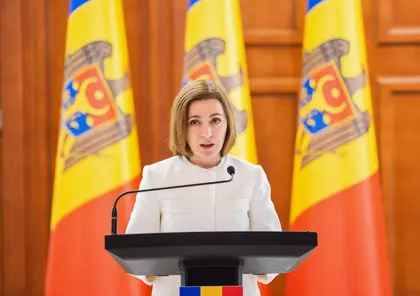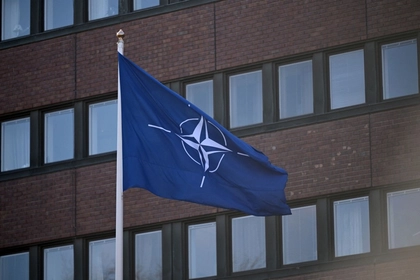After a recent failed coup in Moldova, Russia could try to target the Moldovan leadership in other ways, according to the former head of Ukraine's Military and Foreign Intelligence, Valeriy Kondratiuk in comments to Kyiv Post.
"Russian special services often resort to political assassinations – the easiest way is poisoning. The poisoning of [Alexei] Navalny, [Alexander] Lytvynenko, the Skripals, and possibly [Viktor] Yushchenko are vivid examples."
JOIN US ON TELEGRAM
Follow our coverage of the war on the @Kyivpost_official.
At the begging of the week, Moldovan President Maia Sandu revealed detailed plans by Russia to overthrow power in the country through violence and hostage-taking.
Over the 20 years of Russian President Vladimir Putin's rule, Russia stands accused of a series of high-profile poisonings of opposition figures, activists, and political migrants.
On Aug. 20, 2019, the founder of the Russian Anti-Corruption Foundation, Alexei Navalny, was hospitalized aboard an emergency Tomsk-Moscow flight in Omsk after his condition rapidly deteriorated. The opposition leader revealed how he was poisoned with the lethal nerve agent Novichok planted in his underpants by Russian special services.
On March 4, 2018, former Russian double agent Sergei Skripal and his daughter Yulia were poisoned with the nerve agent Novichok after it was smeared on the doorhandle of their home in Salisbury, Britain, where they were granted political asylum. They both survived, although a local resident died after coming into contact with the substance.

Russia, China FMs Meet as ASEAN Talks Get Underway in Laos
The British government has accused Russia of involvement in the attempted murder of the Skripals and of violating the Chemical Weapons Convention. According to British law enforcers, Russian officers "Aleksandr Petrov" and "Ruslan Boshirov" (real names Anatoly Chepiga and Aleksandr Mishkin) were behind the attempt.
On Nov. 23, 2006, former FSB officer Alexander Litvinenko died in London, UK. Three weeks earlier, he had drank tea containing the rare radioactive isotope polonium-210 in a London establishment. Scotland Yard believes the Russian government was involved in the poisoning. The British side thinks the murder was instigated by Andrey Lugovoi, an officer of the Main Directorate of Protection of the Russian Federation and current State Duma deputy.
On Sep. 5, 2004, presidential candidate Viktor Yushchenko was poisoned by dioxin. In Ukraine, Russia is blamed because he opposed a candidate supported by Moscow. This theory is indirectly supported by the fact that Russia is among the narrow circle of countries that produce dioxin using the same formula as the substance found in Yushchenko's body.
You can also highlight the text and press Ctrl + Enter






